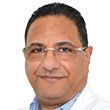The past 50 years have witnessed the breast cancer mortality rate going south, thanks to the modern treatment and screening that have evolved over the years. However, more targeted diagnosis is likely to enhance the accuracy and competence of care.
Genetic testing has enabled detection of our individual risks for developing certain illnesses earlier than ever and, most importantly, take adequate care to protect our health. BRCA gene testing for instance detects genetic predisposition to develop breast and/or ovarian cancer and hence is an absolute medical boon to prevent the cancer early on.

As a part of the BRCA gene test, DNA analysis is done to identify mutations in either one of the two susceptible genes- BRCA1 and BRCA2. Women inheriting mutations in these genes are at an increased risk of developing breast and/or ovarian cancer.
Based on one’s personal or family history with this disease, the BRCA gene test is recommended to those who are likely to have inherited the mutation. A positive result means you have a higher risk of contracting the disease and you can start working with a doctor to manage the risk. The BRCA tests are very effective for earlier detection of breast and /or ovarian cancer. BRCA testing is a simple blood test and does not need any biopsy or invasive procedure.

Mammogram involves an X-ray of the breast and can successfully detect the lump up to two years before the tumour can be noted by you or your doctor.
For early detection of breast cancer, the prime screening test is the mammogram. This test involves an X-ray of the breast and can successfully detect the lump up to two years before the tumour can be noted by you or your doctor. Doctors recommend women over 40 years of age to have a mammogram once a year since the chance of getting breast cancer increases with age. Tests are usually done after symptoms appear, but many women with breast cancer are asymptomatic. Hence, it is of paramount importance to go for regular screening. Therefore, it is highly recommended to be proactive and go for an earlier detection.
— The writer is a world-renowned medical oncologist with over 25 years of experience across the UK, Egypt, Saudi Arabia, Oman and the UAE. He has special interest in the earlier and early detection of breast cancer and writes for more than 60 national and international publications.




